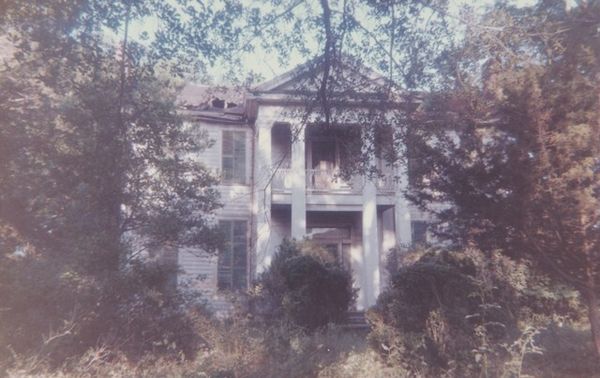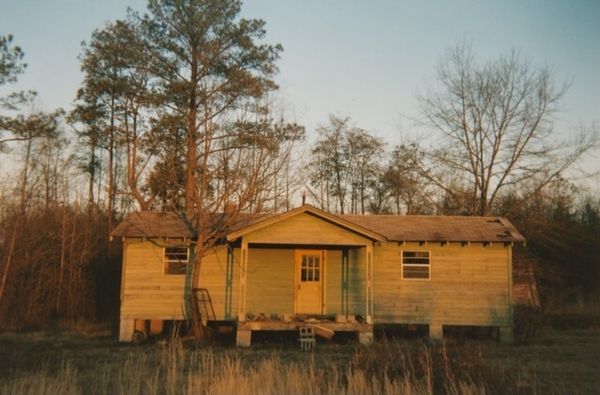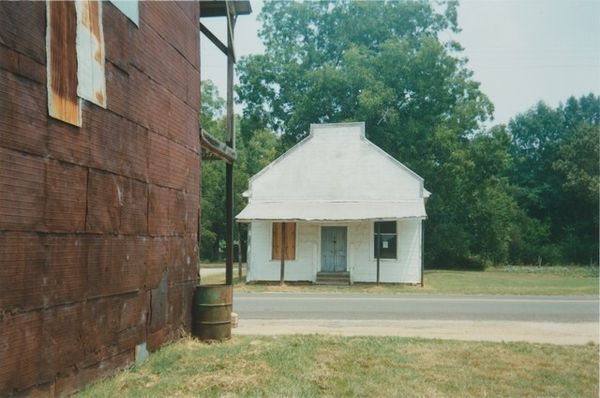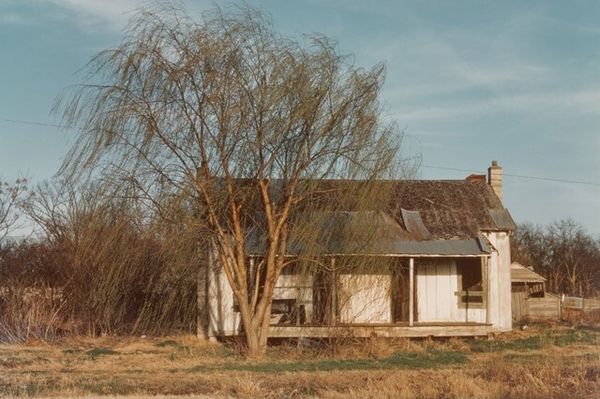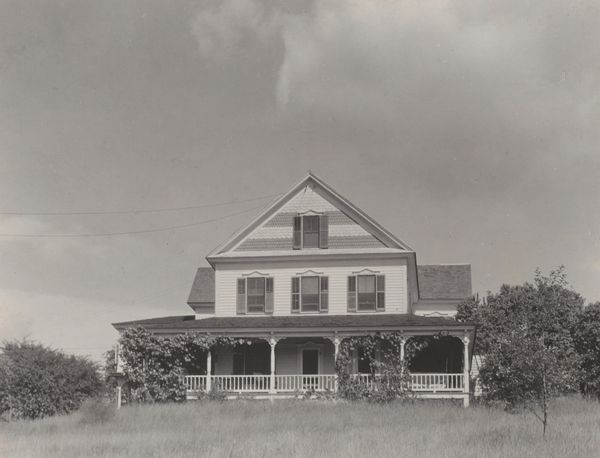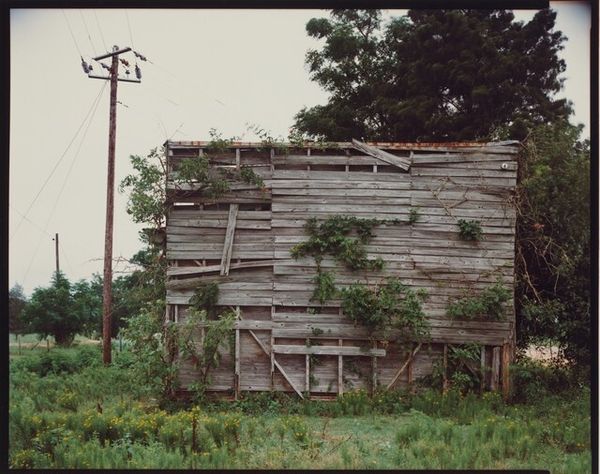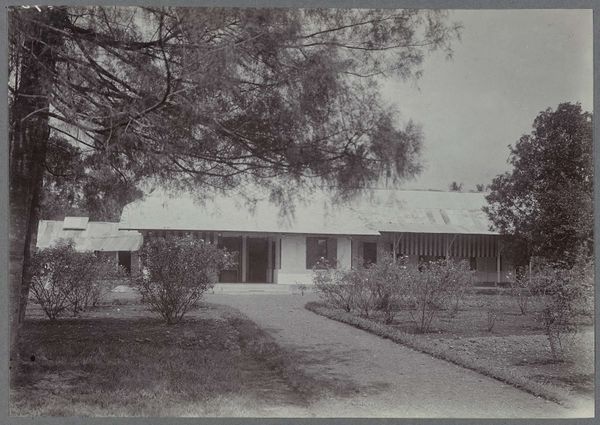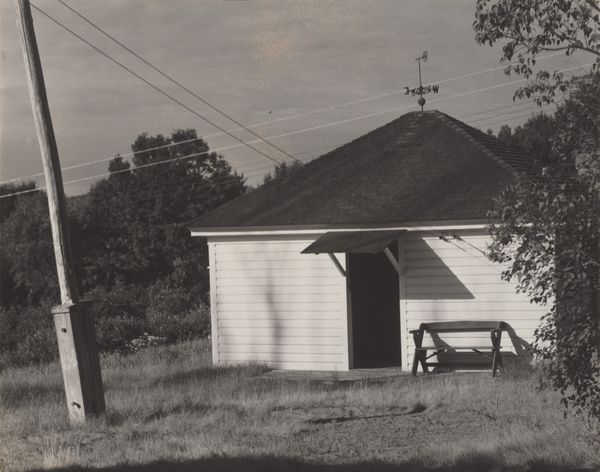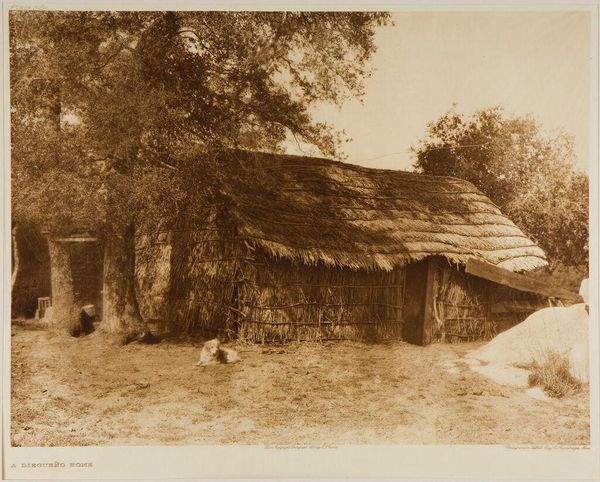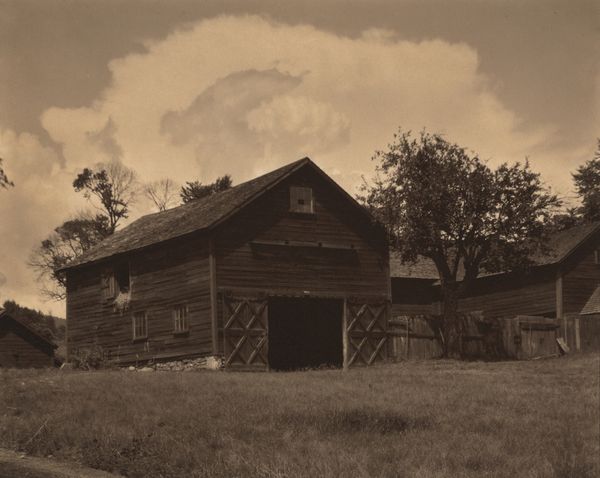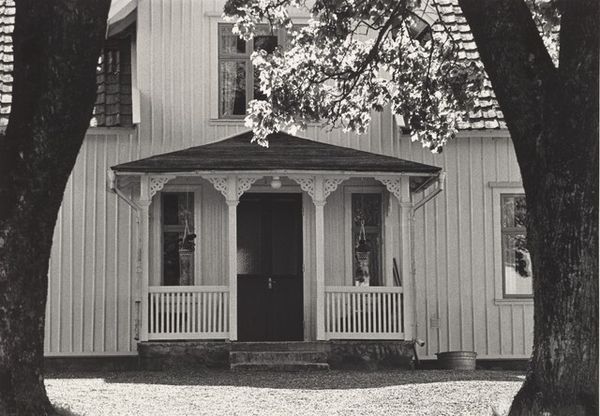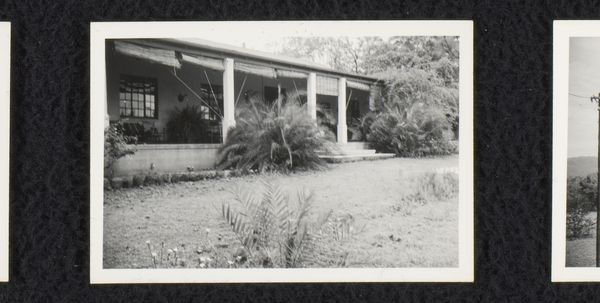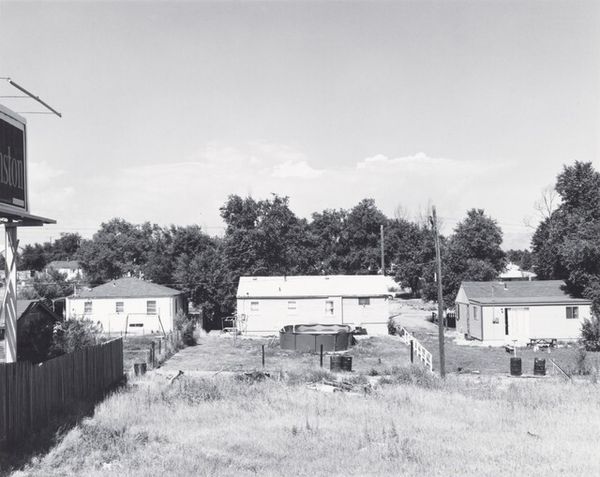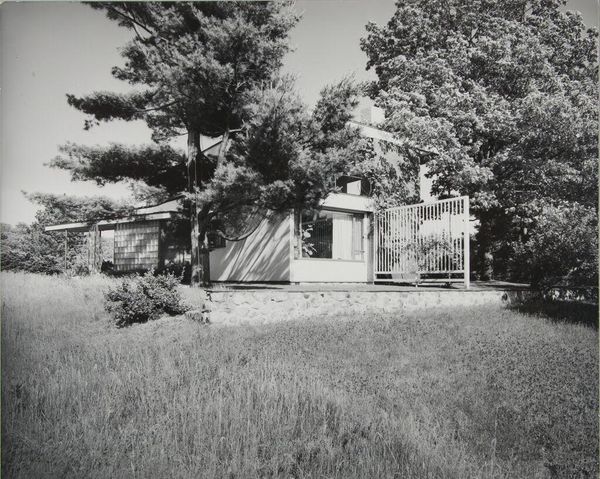
photography
#
landscape
#
outdoor photography
#
photography
#
folk-art
#
realism
Dimensions: image: 8.41 × 12.54 cm (3 5/16 × 4 15/16 in.) sheet: 20.32 × 25.4 cm (8 × 10 in.)
Copyright: National Gallery of Art: CC0 1.0
Editor: Here we have William Christenberry's photograph, "Black house, Stewart, Alabama," likely taken between 1989 and 1993. It's a seemingly simple image of a rural house, yet there's a stillness and sense of something unspoken. What stories do you see reflected in this scene? Curator: The "black house" itself immediately pulls at something deep, doesn't it? Not just the literal color but the *idea* of "blackness." It can signify so much: mourning, secrecy, the void, or simply earthiness, rootedness. Coupled with the setting—rural Alabama—what cultural narratives begin to emerge for you? Editor: Well, given the location and timeframe, I can't help but think about the history of the South and the complex relationship between race, land, and memory. The house appears abandoned or in disrepair, and I feel a certain weight connected to it. Curator: Precisely. The symbolism is powerful, particularly in the South. Houses often serve as stand-ins for bodies, families, entire communities. This image then is a meditation on the passage of time, and a visual encoding of fading memory. Look at the rusty roof, for example – what might that signify? Editor: Decay, maybe? The impermanence of things? Perhaps lost industry or hard times? Curator: Yes, indeed! Consider the role of vernacular architecture, and rural landscapes within the artistic or social consciousness of a nation. Christenberry asks us to pause and really look closely. What kind of dialogue is happening with history in this very moment? Editor: It is powerful to think of objects as visual language carrying so many layers of meaning. Thank you, I had not previously considered the house to be anthropomorphic, let alone indicative of collective memory! Curator: My pleasure! It’s about recognizing that images are never neutral; they actively participate in the construction—and preservation—of cultural narratives.
Comments
No comments
Be the first to comment and join the conversation on the ultimate creative platform.
